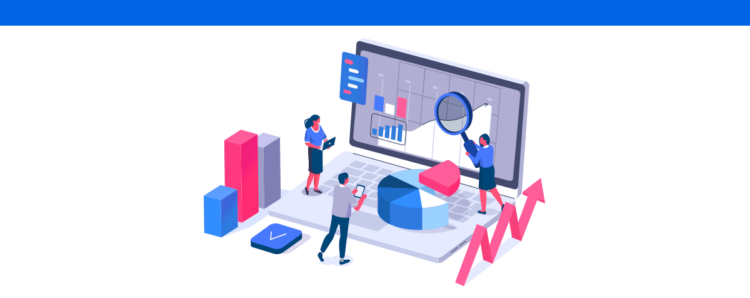Learn how to leverage Data-Driven Culture to make the best decisions for your company or clients
Data-driven culture is becoming increasingly vital for companies and communication agencies to make strategic marketing decisions.
While actions based on intuition or past results, whether positive or negative, are still common among decision-makers, they are proving to be increasingly ineffective. Consequently, data-oriented guidance is gaining momentum and becoming a key player in the development of successful businesses.
Curious about how data-driven culture can be beneficial for your company or agency? Then follow along to discover its advantages and learn how to implement it!
What is Data-Driven Culture?
You’ve undoubtedly heard terms like Big Data, Business Intelligence, and Business Analytics, which define data analysis as the most strategic way to make decisions within a company or project.
These methods are employed within a data-driven culture to place data at the heart of business decisions. This means using real and relevant information to guide actions and achieve successful outcomes.
In marketing strategies, this approach is no different. Whether for your agency or company’s projects, decision-making should be based on metrics, statistics, and intelligent analysis methodologies.
Thus, it’s not enough to just capture raw data (Big Data), but also to process it in a way that yields relevant data, also known as Right Data, for your planning.
The identification of the most crucial information will depend, of course, on the marketing objectives of the projects. However, when well applied, data-driven culture presents consistent results and significantly enhances the customer experience.
Benefits of Data-Driven Culture for Marketing
Whether a company or client aims to strengthen their brand, generate more leads, or increase sales, data-driven culture can (and should) be used to make their marketing strategies more effective. Below, we explain the advantages of this working method. Check it out!
Data-Guided Decisions
The foremost and most significant benefit of data-driven culture is undoubtedly the guidance of decisions through properly collected and processed data.
After all, when you use statistics and real information to plan your actions, you can gain strategic insights more aligned with the project’s objectives. Ideas based on feeling may be tempting, but there’s no certainty they will be successful, right?
Process Optimization
When you know where to find data and how to process it for the best insights, one consequence is the optimization of internal processes within the agency or company.
This way, you stop allocating time to ideas that may not work and start being more strategic in planning, execution, and even optimization of investments in projects.
Greater Value for the Offered Service or Product
With data-driven decisions and optimized processes, the value of the service or product delivered to the client increases, as the results come from more effective strategies.
For example: if you optimize your client’s ad investments by analyzing Google Ads data and making this decision, you are likely to achieve better performance with the same budget.
Therefore, when presenting the biweekly or monthly digital marketing report, you will be able to increase the value of the work performed, as you will have data to show how you gained this insight, what return it provided, and what the future processes will be.
More Personalized Strategies
With a data-driven culture, you also get ideas more aligned with the business persona and their needs. As a result, strategies become more personalized to address all stages of the buying journey.
The outcome is the anticipation of solutions and a stronger connection with the audience, which allows the brand to stand out in the market and deliver the right message to the ideal customer at the best time.
How to Implement Data-Driven Culture in Your Company or Agency?
Now that you know the benefits that data-driven culture brings to companies and marketing agencies, it’s time to understand how to adopt this method with your team.
It may seem complicated at first, but it all starts, of course, with planning. Before anything else, you need to define how data will be collected and processed so that processes can be organized to meet the needs of each project.
For agility and practicality in analyses, for example, it’s essential that this method be accompanied by a good tool for generating digital marketing reports.
However, beyond adopting this methodology and having platforms to support data collection, it’s necessary to engage the agency or company team in this reality. It’s no coincidence that the strategy’s name includes the word “culture,” right?
More than learning to obtain data and extract the best from data-driven related solutions, the team needs proper training to conduct effective analyses and plan actions that truly make sense for their projects.
For data-driven culture to be efficient, data should not be confined to marketing decisions. It’s essential to align with the sales department and other important areas of the company.
Thus, the entire business can develop with data guidance and, consequently, in a healthier and more effective way.



